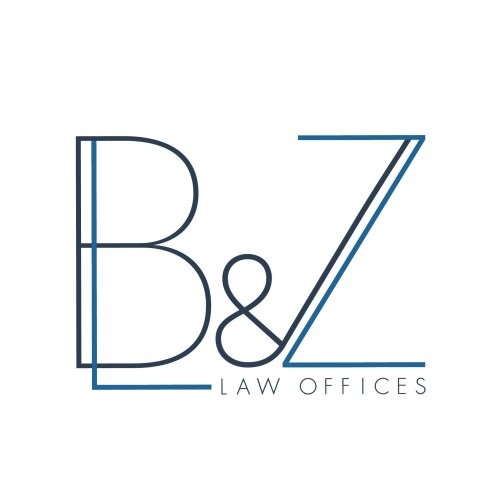Best Private Equity Lawyers in Israel
Share your needs with us, get contacted by law firms.
Free. Takes 2 min.
Or refine your search by selecting a city:
List of the best lawyers in Israel
About Private Equity Law in Israel
Private equity in Israel is a dynamic and fast-growing field that plays a significant role in the country’s robust business landscape. Private equity typically involves investment funds that acquire, restructure, or grow private companies. Israel is recognized for its vibrant start-up ecosystem and technological innovations, which makes it an attractive market for private equity investors. The legal environment for private equity in Israel has evolved to meet international standards while maintaining specific local characteristics. Legal expertise is essential for navigating this complex area, as rules and regulations can differ from those in other jurisdictions.
Why You May Need a Lawyer
There are several situations where you may require legal support in private equity matters in Israel. Common scenarios include:
- Negotiating and drafting investment agreements and term sheets
- Conducting legal due diligence on target companies
- Structuring private equity funds and joint ventures
- Ensuring regulatory compliance with local and international standards
- Handling cross-border transactions and investments
- Navigating intellectual property issues when investing in technology-driven companies
- Resolving disputes between investors and portfolio companies
- Managing exits such as IPOs, mergers, or acquisitions
Local Laws Overview
Israel has a well-developed legal framework that governs private equity activity, most notably under the Israeli Companies Law, securities regulations, and antitrust legislation. A few key aspects to consider include:
- Corporate Structures: Israeli law provides several vehicles for private equity investments, including limited companies and limited partnerships.
- Regulatory Oversight: The Israel Securities Authority (ISA) oversees aspects of private equity relevant to public offerings and securities.
- Anti-Money Laundering: Strict compliance measures exist to prevent money laundering and terror financing, impacting fund activities and due diligence.
- Taxation: Israel has varied tax structures and incentives, especially for foreign investors, affecting the cost and returns of private equity deals.
- Labor Laws: When acquiring or investing in companies, Israeli labor protections and employee rights must be taken into account.
- Antitrust and Competition: Private equity transactions may require review by Israeli competition authorities to prevent market concentration.
Understanding these aspects is vital to structuring successful investments and ensuring legal compliance.
Frequently Asked Questions
What is private equity and how is it different from venture capital in Israel?
Private equity refers to investing in established private companies, often involving larger sums and control positions. Venture capital focuses more on early-stage, high-growth start-ups, usually with minority stakes. In Israel, both play crucial roles, but private equity targets more mature companies.
Are there any restrictions on foreign investors in Israeli private equity?
Israel is generally open to foreign private equity investment. However, certain sectors such as defense or critical infrastructure may have restrictions. Investments must also comply with anti-money laundering and tax regulations.
What due diligence is required for private equity investments in Israel?
Due diligence typically includes reviewing financials, legal compliance, material contracts, intellectual property, labor relations, and regulatory issues. Local legal professionals are essential for thoroughly assessing risks and obligations.
What is the role of the Israel Securities Authority in private equity?
The Israel Securities Authority regulates offerings of securities, some aspects of fund formation, and disclosures. While most private equity deals are private and not publicly regulated, specific activities such as raising capital from the public may require ISA approval or oversight.
How are private equity funds structured in Israel?
Common structures include limited partnerships and companies. These structures offer flexibility in management and profit-sharing, as well as liability protection for investors.
Are there specific tax considerations for private equity in Israel?
Yes, tax treatment varies depending on the investor’s residence, fund structure, and type of investment. Israel has tax treaties and incentives that can reduce withholding taxes and promote foreign investment, but it is vital to seek local tax advice.
How are private equity exits typically executed in Israel?
Common exit strategies include trade sales, secondary sales, and initial public offerings (IPOs). The high pace of M&A activity in Israel means exits are a key consideration from the start of the investment process.
Is legal advice necessary for smaller private equity transactions?
Even for smaller deals, legal advice is crucial to ensure compliance, document agreements, and protect your investment in line with Israeli law.
What are the main legal risks in private equity transactions in Israel?
Risks can include undisclosed liabilities, regulatory non-compliance, disputes among investors or founders, and issues with intellectual property or employment matters. A lawyer’s role is to help identify and mitigate these risks.
Can I invest in Israeli private equity remotely?
Yes, it is possible to invest from abroad, but cross-border investments involve additional regulatory and tax considerations. Engaging local legal counsel is important for a smooth process.
Additional Resources
- Israel Securities Authority (ISA): Regulates securities and investment funds
- Israeli Ministry of Justice: Oversees company registrations and legal entities
- Israel Advanced Technology Industries (IATI): Industry association supporting investments and private equity
- Israel Innovation Authority: Provides guidance and incentives for technology investors
Consider consulting with leading local law firms specializing in corporate and private equity law for tailored advice.
Next Steps
If you are planning to engage in a private equity transaction in Israel or require guidance on related matters, consider the following steps:
- Define your investment or business goals clearly
- Identify experienced lawyers with expertise in Israeli private equity law
- Gather relevant documentation such as corporate records and financial statements
- Schedule a consultation to assess legal options and risks
- Work closely with legal counsel to conduct due diligence, structure the deal, and prepare all necessary agreements
- Ensure compliance with all local regulations and reporting obligations
Lawzana helps you find the best lawyers and law firms in Israel through a curated and pre-screened list of qualified legal professionals. Our platform offers rankings and detailed profiles of attorneys and law firms, allowing you to compare based on practice areas, including Private Equity, experience, and client feedback.
Each profile includes a description of the firm's areas of practice, client reviews, team members and partners, year of establishment, spoken languages, office locations, contact information, social media presence, and any published articles or resources. Most firms on our platform speak English and are experienced in both local and international legal matters.
Get a quote from top-rated law firms in Israel — quickly, securely, and without unnecessary hassle.
Disclaimer:
The information provided on this page is for general informational purposes only and does not constitute legal advice. While we strive to ensure the accuracy and relevance of the content, legal information may change over time, and interpretations of the law can vary. You should always consult with a qualified legal professional for advice specific to your situation.
We disclaim all liability for actions taken or not taken based on the content of this page. If you believe any information is incorrect or outdated, please contact us, and we will review and update it where appropriate.
Browse private equity law firms by city in Israel
Refine your search by selecting a city.

















